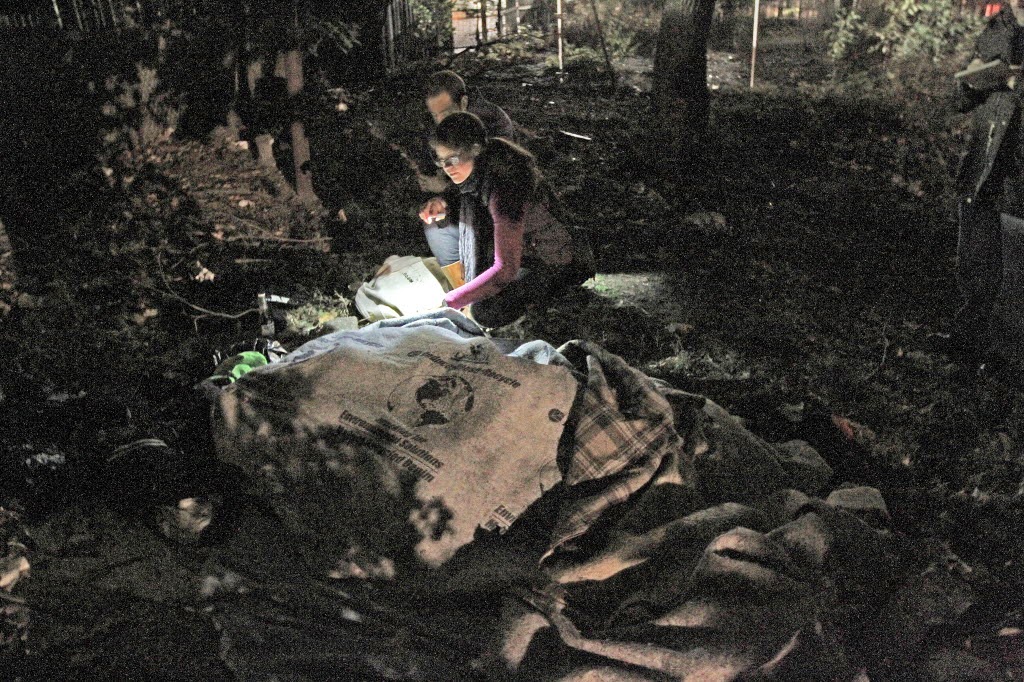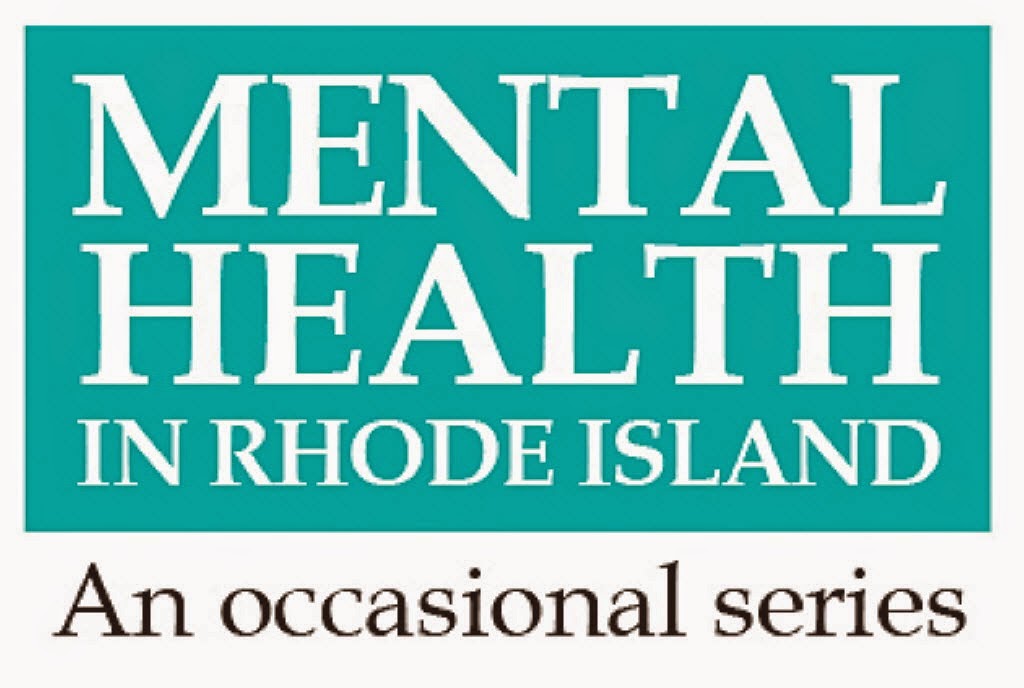I have been privileged to have played a role in these efforts for many years. And so I was pleased and honored when the paper this fall -- at my urging, and with the full support of executive editor Karen Bordeleau, deputy executive editor Sue Areson and project editor John Kostrzewa -- began a new series: Mental Health in Rhode Island.
-- The series launched on Oct. 26 with a look at problems in today's public system.
 |
| Jim McNulty, national authority, lives with bipolar disorder. |
-- It continued on Oct. 27 with a history of the community effort, and funding, gaps in service, statewide fragmentation and other contemporary issues. Readers were offered a poll and superb interactive graphics by my colleague Paul Edward Parker.
 |
| Susan Jacobsen, head of the Mental Health Association of R.I. |
-- Part 3 of the series was published on Nov. 2 -- an outstanding look at homeless people with mental illness by my partner on the series, Paul Davis.
 |
| Homeless people behind Kentucky Fried Chicken, Broad Street, Providence. |
-- A record crowd attended The Journal's Nov. 6 Publick Occurrences forum, “Rhode Island’s Mental Health System: Condition Critical?”
 |
| Publick Occurrences, Nov. 6, 2014, Rhode Island College. |
-- The language of mental health and mental illness was explored in a Nov. 23 story.
 |
| Dr. Gabor Keitner, R.I. and Miriam Hospitals, Brown Med. |
-- The Criminalization of Mental Illness, a forum at Butler Hospital, sponsored by the Mental Health Association of Rhode Island, story published Dec. 9.
 |
| Madelon Baranoski, associate professor of psychiatry at Yale |
-- Survey shows high incidence of mental illness, trauma among Rhode Island's homeless, story by Paul Davis, Dec. 10.
 |
| Dr. Craig Kaufmann, RI Homeless Coalition's Megan Smith, with man at bus stop. |
-- Hundreds of people who need mental-health care forced wrongly into prison, Dec. 14.
 |
| Clinical Chief Louis Cerbo, Correctional Officer Wm. Galligan. |
-- ‘Did I belong somewhere? Yes. Was prison the place? … Absolutely not,’ Dec. 14.
 |
| John Vitale: homeless, and a person living with mental illness. |
-- R.I. prison system lacks resources to care for mentally ill inmates, Dec. 15.
 |
| D-Mod, High Security, R.I. state prison. |
-- With new Governor Raimondo's support, and new Department of Behavioral Health, Developmental Disabilities and Hospitals chief Maria Montanaro set to take office after former head Craig Stenning was not reappointed, consensus builds for reform in 2015, Jan. 25, 2015.
 |
| New BHDDH chief Montanaro, replacing Stenning |
-- PeaceLove Studios, based in Hope Artiste Village in Pawtucket,
Stay tuned. Much more to come...
All photos courtesy of The Providence Journal. Thanks, guys!


Discover how kidney transplant treatments overseas can significantly enhance survival rates and recovery, as highlighted in the informative article. This resource underscores the critical benefits of accessing specialized care for kidney transplant patients, offering valuable insights into improving health outcomes. Explore more about increasing survival and recovery chances with kidney transplants abroad.
ReplyDeleteIf you're facing similar challenges, consider exploring relationship counseling in Cincinnati, which offers valuable support and resources to improve mental well-being. Their guide to relationship counseling cincinnati can be particularly beneficial in fostering healthier relationships and managing mental health effectively.
ReplyDelete